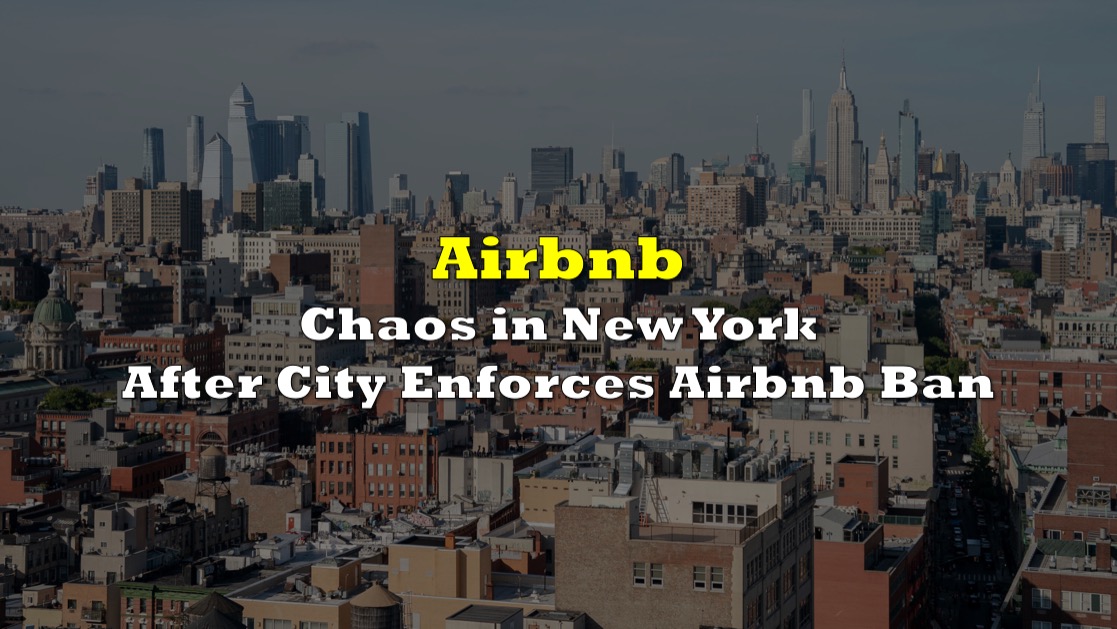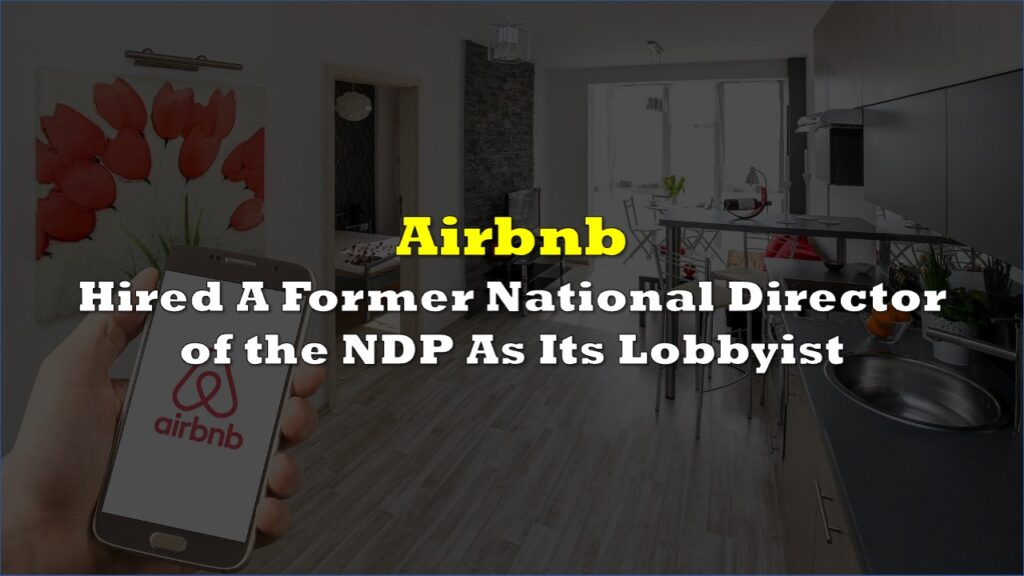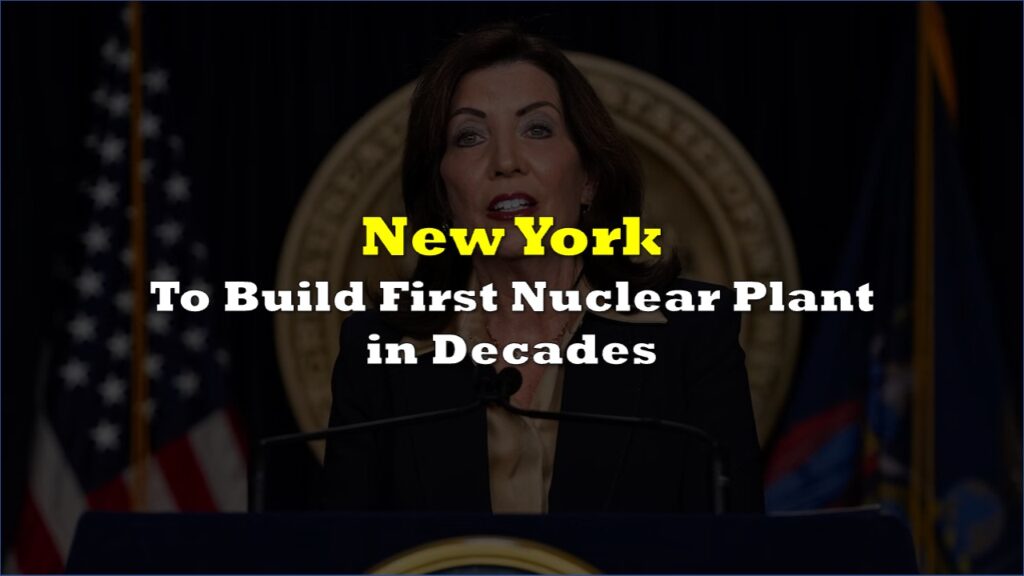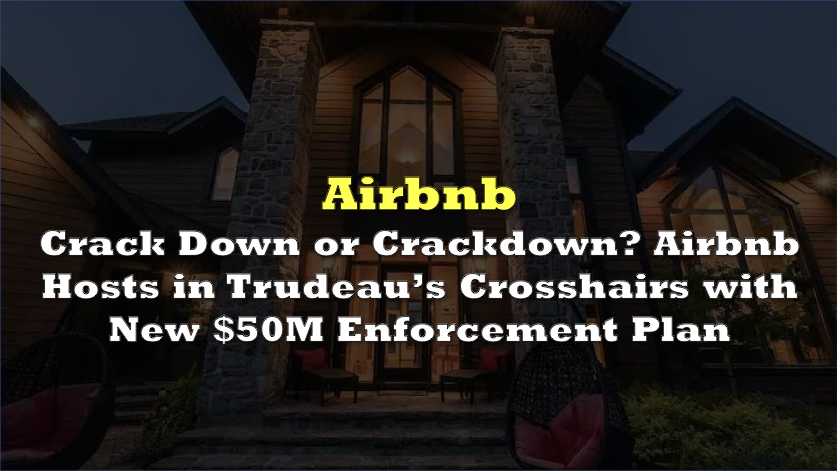Since the implementation of a stringent new law banning most short-term rentals in New York City in early September, as few as 2 percent of the previous 22,000 Airbnb (Nasdaq: ABNB) listings have registered with the city. However, an alarming rise in illegal short-term rental advertisements has emerged on social media and lesser-known platforms, with some even continuing to be listed on Airbnb itself.
According to Inside Airbnb, a watchdog group tracking the platform, the number of short-term listings on Airbnb has plummeted by over 80 percent, dropping from 22,434 in August to a mere 3,227 by October 1. Shockingly, only 417 properties have been officially registered with the city, suggesting that a vast majority of short-term rentals in the city are operating without permission.
This crackdown on short-term rentals has inadvertently given rise to a “black market” for such accommodations, as asserted by Lisa Grossman, a spokesperson for Restore Homeowner Autonomy and Rights (RHOAR), a local group that opposed the law. Grossman has noted a surge in short-term rental activity on platforms like Facebook, which she describes as “going underground.”
AirBnB laws finally took place in New York. Folks are now posting ads for their short term rentals on Cragslist, Facebook, and other websites. Wont be long before someone gets scammed/hurt in the process
— peanut butter and jealous (@missed_3pointer) October 9, 2023
New York’s strict stance on short-term rentals has dramatically reshaped the city’s vacation rental market. People have started utilizing platforms such as Craigslist, Facebook, Houfy, and others, where they can find guests or rental listings without the regulatory oversight found on Airbnb. As a result, hotel prices are anticipated to surge due to increased demand.
AirDNA, a short-term rental intelligence firm, reported a mere 2,300 short-term rentals listed on Airbnb in New York City by late September. According to their data, a staggering 94% of Airbnb’s listings in the city are now advertised as long-term rentals. To operate as a short-term rental on Airbnb, hosts must meet stringent requirements, including allowing only two guests and being present in the property during the stay. This shift has essentially eliminated many whole apartment listings, except for those falling under a Class B dwelling category such as hotels, boarding houses, and clubs.
However, individuals have found ways to circumvent these rules. Many Airbnb listings now include a section in the property’s description for hosts to enter a registration number or state that they are exempt. A search on Airbnb for short stays in New York still reveals numerous listings that claim exemption from the city’s registration requirements, raising concerns about their legality.
Nathan Rotman, the public policy regional lead for Airbnb, stated that the company is “working closely” with the city to enforce the new registration law.
Inside Airbnb’s data indicates that approximately 2,300 short-term properties have labeled themselves as exempt from registration on Airbnb, while several hundred more remain unclear about their registration status. An additional 35,000 listings are long-term rentals. Airbnb did not verify the numbers reported by Inside Airbnb, and the Mayor’s Office of Special Enforcement in New York did not provide updates on the total number of registered short-term rentals or issued violations for illegal listings.
New York City’s crackdown on short-term rentals serves as an example of cities fighting against this accommodation model. Advocates of the rule argued that it would free up apartments for New Yorkers grappling with high rents and housing shortages. However, smaller landlords contend that it deprives them of flexible extra income without significantly impacting the housing supply crisis.
These smaller landlords are actively lobbying New York City councilors to amend the rules to allow them to legally rent out their units. RHOAR, composed of hosts who own and occupy single-family homes or two-unit dwellings, believes they have been unfairly treated in conjunction with large landlords. Grossman revealed that RHOAR has engaged with city councilors to alter the law, permitting smaller hosts to legally offer short-term rentals.
The fall of Airbnb in New York City https://t.co/24685HUg4X
— Le Monde in English (@LeMonde_EN) October 4, 2023
Outside of Airbnb, individuals are posting listings and seeking short-term rentals on Facebook groups, and Craigslist is rife with rental ads that feature both weekly and nightly prices. These off-platform rentals pose risks to both guests and hosts, who may lack the protections afforded by larger companies like Airbnb.
Additionally, there’s Houfy, another platform for short-term rental listings. It was discovered that many of these listings originated from users who joined the site in September, coinciding with the implementation of New York’s new registration rules. Houfy aims to facilitate direct bookings between guests and hosts, akin to Airbnb but without the associated fees. The platform compares property prices between Airbnb and Houfy, emphasizing potential cost savings by avoiding Airbnb’s fees.
Thijs Aaftink, CEO of Houfy, indicated that the company has received a notice from New York City regarding the new rule and is actively reviewing how to comply. Aaftink emphasized that Houfy, unlike Airbnb and other rental platforms, does not collect commissions on transactions between hosts and guests, arguing that the company is not involved in the transaction. He emphasized that hosts are responsible for adhering to local laws when listing their properties.
Following the rule change, Airbnb is shifting its focus away from New York, once its largest market. Airbnb CEO Brian Chesky has revealed plans to explore longer rentals, car rentals, and dining pop-ups. The company has also set its sights on Paris, now its largest market and the host of the 2024 Summer Olympics.
“I was always hopeful that New York City would lead the way—that we would find a solution in New York, and people would say, ‘If they can make it in New York, they can make it anywhere,'” Chesky commented during an event in September hosted by Skift, a travel industry news site. “I think, unfortunately, New York is no longer leading the way—it’s probably a cautionary tale.”
Airbnb last traded at $132.33 on the Nasdaq.
Information for this briefing was found via Wired and the sources mentioned. The author has no securities or affiliations related to the organizations discussed. Not a recommendation to buy or sell. Always do additional research and consult a professional before purchasing a security. The author holds no licenses.









